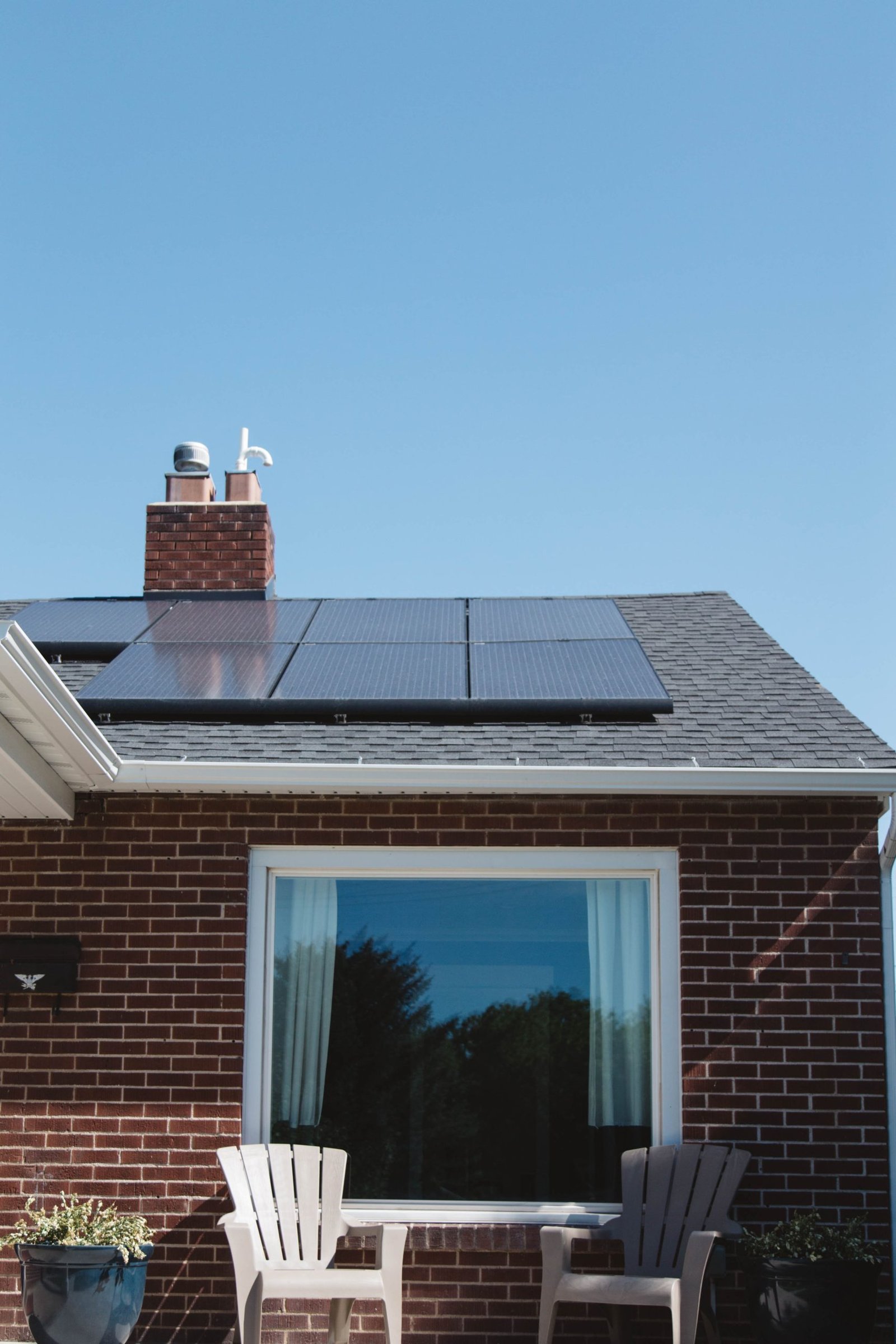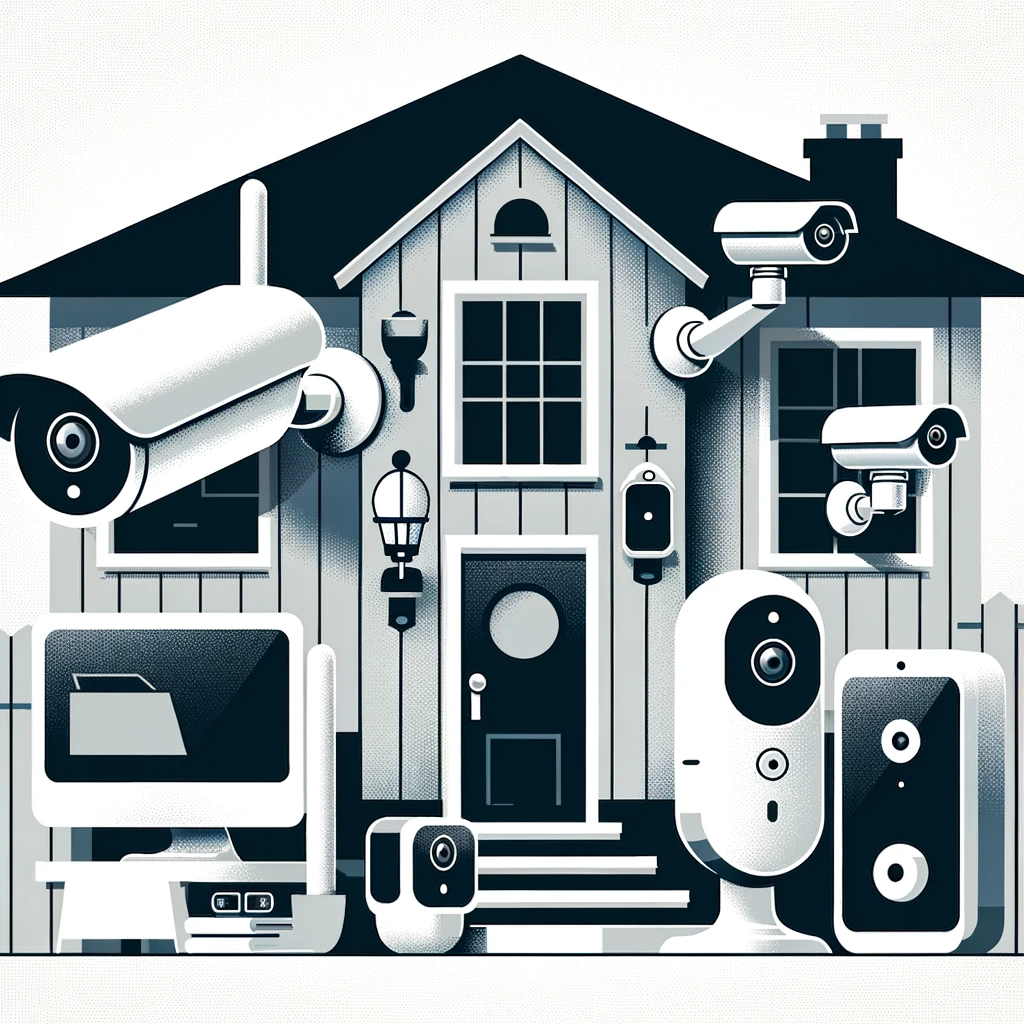Simple Tips To Reduce Energy Costs In Your Home

Install a programmable thermostat to optimize heating and cooling schedules
A programmable thermostat can help optimize heating and cooling schedules, leading to significant energy savings. Here’s how:
- Energy Efficiency: Programmable thermostats can save homeowners up to 10% annually on heating and cooling bills by automatically adjusting the temperature when they are asleep or away.
- Customized Schedules: These devices allow users to create personalized schedules based on their daily routines, ensuring that energy is not wasted when no one is home.
- Remote Access: Many modern programmable thermostats offer remote access through smartphone apps, enabling users to adjust settings from anywhere. This feature enhances convenience and flexibility while promoting energy conservation.
- Smart Technology Integration: Some models integrate with smart home systems like Amazon Alexa or Google Home, providing seamless control over the thermostat using voice commands. This integration further streamlines energy management within the household.
Programmable thermostats empower homeowners to take charge of their energy usage without sacrificing comfort. By optimizing temperature settings based on occupancy patterns, these devices contribute significantly to reducing overall home energy costs.
Seal windows and doors to prevent drafts and reduce heat loss
Drafty windows and doors can significantly increase your energy bills, but sealing them is a simple yet effective solution. Here’s how it helps:
- Energy Efficiency: Sealing gaps around windows and doors prevents warm air from escaping in the winter or entering in the summer, reducing the workload on your heating and cooling systems.
- Cost Savings: According to the U.S. Department of Energy, properly sealing air leaks can lead to savings of up to 10% on total annual energy costs.
- DIY Solutions: Weatherstripping, caulk, or draft stoppers are affordable options for sealing gaps without professional assistance.
- Environmental Impact: By minimizing energy consumption through better insulation, you’re also contributing to a lower carbon footprint.
Ensuring that your home is properly sealed not only reduces energy costs but also enhances comfort by maintaining consistent indoor temperatures. It’s an investment that pays off both financially and environmentally.
Upgrade to energy-efficient appliances that use less electricity
Energy-efficient appliances can significantly reduce home energy costs. For instance, ENERGY STAR-certified refrigerators use about 9-10% less energy than their conventional counterparts. Similarly, upgrading to an energy-efficient washing machine can save up to $50 per year on utility bills.
When considering new appliances, it’s important to look at the EnergyGuide label. This yellow label provides estimated annual operating costs and compares the appliance’s energy use with similar models. It’s a quick way for consumers to compare the efficiency of different appliances before making a purchase.
Moreover, these modern appliances are not only cost-effective but also environmentally friendly. They help in reducing carbon footprint by consuming less electricity and water. For example, replacing an old dishwasher with an ENERGY STAR model could save enough water annually to fill a swimming pool.
Some utility companies offer rebates or incentives for purchasing energy-efficient appliances as part of their conservation programs. These rebates can significantly offset the initial cost of buying such appliances.
Furthermore, investing in smart technology-enabled devices like thermostats and lighting systems can lead to even more substantial savings over time as they optimize usage based on real-time data and user patterns.
Use LED light bulbs which consume significantly less energy than traditional bulbs
The use of LED light bulbs is a simple yet impactful way to reduce home energy costs. These bulbs consume significantly less energy than traditional incandescent bulbs, making them an efficient choice for lighting your home.
LED bulbs can last up to 25 times longer than traditional incandescent lights, reducing the frequency of replacements and lowering maintenance costs. They also produce very little heat compared to incandescent bulbs, contributing to lower cooling costs in warm climates.
LED bulbs are available in a variety of color temperatures, allowing you to customize the ambiance and mood in different areas of your home. This versatility makes them an attractive option for both functional and decorative lighting purposes.
According to the U.S. Department of Energy, widespread use of LED lighting has the greatest potential impact on energy savings in the United States. If all households switched entirely to LEDs, it could save about 348 TWh (terawatt-hours) of electricity per year by 2027 – equivalent to the annual electrical output of 44 large electric power plants.
Moreover, many utility companies offer rebates or incentives for switching to energy-efficient LED lighting. Taking advantage of these programs can further offset the initial investment cost and accelerate your return on investment through reduced energy bills.
Insulate your attic and walls to maintain temperature and reduce the need for heating/cooling
Insulating your attic and walls is a crucial step in making your home more energy-efficient. Here’s why:
- Energy Savings: Proper insulation can save you up to 15% on heating and cooling costs, according to the U.S. Department of Energy. It helps maintain a consistent indoor temperature, reducing the workload on your HVAC system.
- Long-Term Investment: While insulating may have an initial cost, it’s a long-term investment that pays off through lower energy bills month after month.
- Environmental Impact: By reducing the need for excessive heating or cooling, proper insulation contributes to lowering carbon emissions associated with energy consumption.
- Prevents Moisture Issues: Insulation acts as a barrier against moisture buildup in attics and walls, preventing potential damage like mold growth and structural deterioration.
When considering insulation options for your home:
- Look into different types of insulation such as fiberglass, cellulose, or spray foam. Each has its own advantages in terms of R-value (insulation effectiveness), cost-effectiveness, and suitability for different areas of the house.
- Consider consulting with a professional to assess your home’s specific needs. A professional can help determine the appropriate type and amount of insulation required for maximum efficiency.
Implement a water-saving strategy with low-flow fixtures and efficient washing machines
Implementing a water-saving strategy can significantly impact your utility bills.
Low-Flow Fixtures:
- Installing low-flow fixtures in bathrooms and kitchens can reduce water usage by up to 60%. These fixtures are designed to maintain high pressure while using less water, thus saving both water and the energy used to heat it.
- The installation of low-flow showerheads alone can save a family of four around 27,000 gallons of water annually.
Efficient Washing Machines:
- Energy-efficient washing machines use nearly 25% less energy and about 33% less water than traditional models. This reduction in resource consumption translates into substantial cost savings over time.
- According to the U.S. Department of Energy, an ENERGY STAR certified washing machine uses approximately 25% less energy and 33% less water than regular washers.
Utilize smart power strips to eliminate phantom energy use from electronics in standby mode
Smart power strips are an effective way to combat phantom energy usage from electronics in standby mode. These power strips work by cutting off power to devices that are not in use, preventing them from consuming energy when idle.
By using smart power strips, households can significantly reduce their electricity bills. According to the Environmental Protection Agency (EPA), the average American household spends about $100 per year on plugged-in devices that are not in use. Smart power strips can help eliminate this unnecessary expense by automatically turning off electronics such as TVs, gaming consoles, and chargers when they’re not being used.
These power strips offer convenience and ease of use. They often come with a combination of always-on outlets for devices that need continuous power and controlled outlets for those that can be switched off when inactive. This feature allows users to customize which devices should remain powered at all times and which ones should be turned off automatically.
Furthermore, smart power strips contribute to environmental conservation by reducing overall energy consumption. The Natural Resources Defense Council (NRDC) estimates that standby or vampire power accounts for 23% of residential electricity consumption in the United States alone. By utilizing smart power strips, households can play a part in minimizing this unnecessary energy waste.
Install solar panels to generate your own renewable energy and potentially earn tax credits
By installing solar panels, homeowners can significantly reduce their reliance on traditional energy sources, leading to substantial long-term cost savings. Here’s why this investment is worthwhile:
- Renewable Energy Generation: Solar panels harness the sun’s energy to generate electricity for your home. This renewable source of power reduces or even eliminates your need for grid electricity, lowering monthly utility bills.
- Potential Tax Credits: Depending on your location, you may be eligible for federal or state tax credits when you install solar panels. These incentives can offset a significant portion of the initial installation costs, making it an attractive financial decision.
- Increased Property Value: Homes equipped with solar panels often have higher property values. According to the U.S. Department of Energy’s Lawrence Berkeley National Laboratory, each additional $1 in energy bill savings from solar panel installation adds $20 to a home’s total value.
- Environmental Impact: Embracing solar power contributes to environmental sustainability by reducing carbon emissions and dependence on non-renewable resources.
Conduct an energy audit to identify areas for improvement and potential savings
When conducting an energy audit, look into every nook and cranny of your home to assess where energy is being used inefficiently. Here’s how you can go about it:
- Identify Energy Usage: Take note of all the appliances, electronics, lighting, heating, and cooling systems in your home. This will help pinpoint areas consuming excessive energy.
- Assess Insulation and Air Leaks: Check for drafts around windows and doors as well as insulation in attics, walls, and crawl spaces. Proper insulation can significantly reduce heating and cooling costs.
- Analyze Lighting Efficiency: Evaluate the type of light bulbs being used – consider switching to LED lights which are more energy-efficient.
- Examine Appliances’ Energy Consumption: Older appliances tend to consume more electricity; hence replacing them with newer models that have higher ENERGY STAR ratings could result in substantial cost savings over time.
Change air filters regularly to maintain efficient heating, ventilation, and air conditioning system performance
Regularly changing air filters is crucial for maintaining an efficient heating, ventilation, and air conditioning (HVAC) system. Here’s why:
- Energy Efficiency: Clogged or dirty filters can restrict airflow, causing the HVAC system to work harder and consume more energy. According to the U.S. Department of Energy, replacing a dirty filter with a clean one can lower your air conditioner’s energy consumption by 5% to 15%.
- Improved Indoor Air Quality: Clean filters help trap dust, pollen, pet dander, and other airborne particles that affect indoor air quality. This is especially important for individuals with allergies or respiratory conditions.
- Longevity of Equipment: Regular maintenance through filter replacement extends the lifespan of your HVAC system. The lack of proper filtration can lead to debris buildup on sensitive components such as the evaporator coil or blower motor.
To maximize efficiency:
- Consider using high-efficiency pleated filters which provide better filtration without significantly reducing airflow.
- Set reminders on your calendar or smartphone to ensure timely replacements every 1-3 months depending on usage and household factors like pets.
Frequently Asked Questions
How can I reduce my home energy costs?
To reduce your home energy costs, you can start by installing a programmable thermostat, sealing windows and doors to prevent drafts, upgrading to energy-efficient appliances, using LED light bulbs, insulating your attic and walls, implementing a water-saving strategy, utilizing smart power strips, installing solar panels for renewable energy, conducting an energy audit and changing air filters regularly.
What are the benefits of using LED light bulbs over traditional ones?
LED light bulbs consume significantly less energy than traditional bulbs. They also have a longer lifespan and produce less heat. By making the switch to LED bulbs in your home, you can save on electricity bills while reducing your environmental impact.
Are there any tax incentives for installing solar panels?
Yes! By installing solar panels at your home or business premises, you may be eligible for various tax credits and incentives offered by federal or state governments. These incentives aim to promote the use of renewable energy sources and offset some of the initial installation costs.
How do smart power strips help in reducing phantom energy use?
Smart power strips eliminate phantom energy use from electronics in standby mode by cutting off power supply when devices are not in use. This helps prevent unnecessary electricity consumption and reduces overall energy wastage without requiring manual intervention each time a device is turned off.
Why is it important to conduct an energy audit for my home?
Conducting an energy audit allows you to identify areas where your home may be losing efficiency or wasting resources. It provides insights into potential savings opportunities through improvements such as insulation upgrades or appliance replacements that align with your specific needs and usage patterns.



